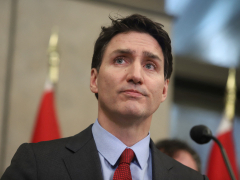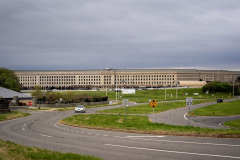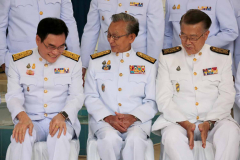Montreal, Canada – Even before he formally re-entered the White House last month to begin his second term as president of the United States, Donald Trump had repeatedly taken aim at an unlikely target: Canada.
Trump argued his country’s northern neighbour had failed to stem irregular migration and drug trafficking at its border with the US, and he threatened to impose steep tariffs on Canadian imports.
To stave off those measures, which experts say would devastate the Canadian economy, the Republican leader then presented an idea: Canada can — and should — become the 51st US state.
“I think Canada would be much better off being a 51st state,” the US president repeated in a Fox News interview that aired over the weekend, continuing a pressure campaign that initially ramped up in December.
Though the proposal was widely denounced, Trump’s comments — and his continued threat to levy tariffs of 25 percent or higher on Canadian goods, including steel and aluminium imports — have roiled labour unions, politicians and regular people across Canada.
Calls to boycott American products and halt trips to the US are gaining steam, alongside a nationalistic push to rethink Canada’s longstanding reliance on cross-border trade.
The leaders of major Canadian political parties, as well as provincial and territorial premiers, have used harsher-than-usual rhetoric against their country’s top international ally, promising to defend Canada’s economic interests and sovereignty.
“To say it’s a unique moment would be an understatement,” said Shachi Kurl, president of the Angus Reid Institute, an independent Canadian research firm.
The mood in Canada right now is one of anxiety and apprehension on one hand, and defiance and anger on the other, Kurl explained.
For many, the feeling is that, “Canada did not pick this fight, but if they’re going to take a punch, they’ll try to give one right back”, she said.
‘The Trump effect’
Trump’s repeated threats against Canada come at an already politically charged moment.
The country has been in the grips of a years-long affordability crisis, and soaring grocery prices and housing costs have fuelled increasingly angry rhetoric against Prime Minister Justin Trudeau.
At the start of the year, Trudeau announced plans to step down once his governing Liberal Party chooses his successor. A new leader and prime minister will be picked in early March, ending nearly a decade of Trudeau-led governments in Ottawa.
The country is also gearing up for a federal election, which must be held before late October.
Yet against that backdrop, Trump’s rhetoric and proposals have become the top political issue in Canada, said Daniel Beland, a professor at McGill University in Montreal and director of the McGill Institute for the Study of Canada.
“The most important factor in Canadian politics right now doesn’t live in Canada — it’s Donald Trump,” Beland told Al Jazeera.
Dubbing it “the Trump effect”, the professor said the “ballot question” in the next Canadian election may end up being which political party and leader is best suited to handle the US president and Canada-US relations.
That could effectively change the race, Beland said.
“The national crisis triggered by Trump … really changes the agenda and maybe also changes the perception of what people think is needed for the country at this point and what leader they would like to have.”

Politicians tap into wave of patriotism
Indeed, some polling has suggested that the Trump administration could be among the factors changing how Canadians plan to vote in the upcoming election.
The opposition Conservative Party had enjoyed a commanding, double-digit lead over the unpopular Trudeau-led Liberals until fairly recently.
But with the prime minister shepherding Canada through Trump’s tariff threat, and the Liberal leadership race boosting interest in the party, the dial seems to be shifting.
The Tories’s lead over the Liberals has narrowed to nine percentage points, a recent Leger Marketing survey found.
The same poll found that Conservative leader Pierre Poilievre and Mark Carney, the ex-Bank of Canada governor who is the frontrunner to take over as the next Liberal leader, were neck-and-neck in terms of who Canadians believed could best handle Trump.
Twenty-two percent of respondents said Poilievre was their preferred choice to manage the Canada-US re





